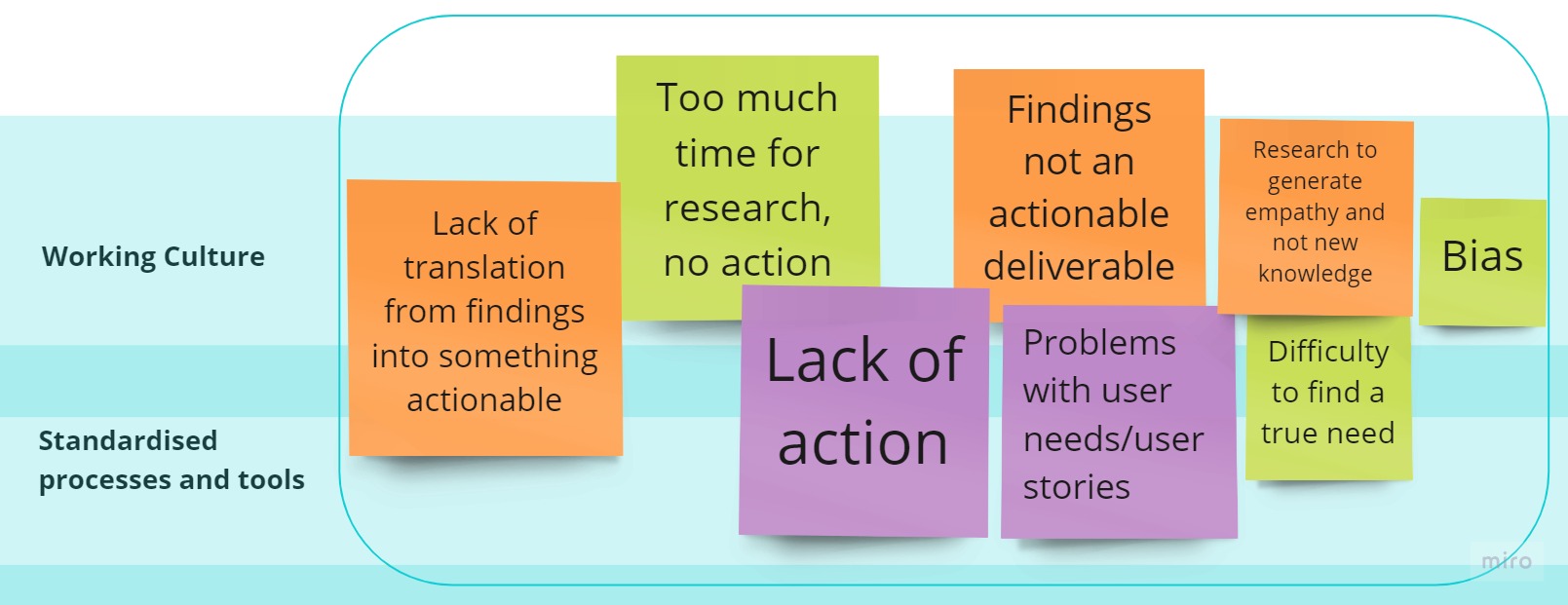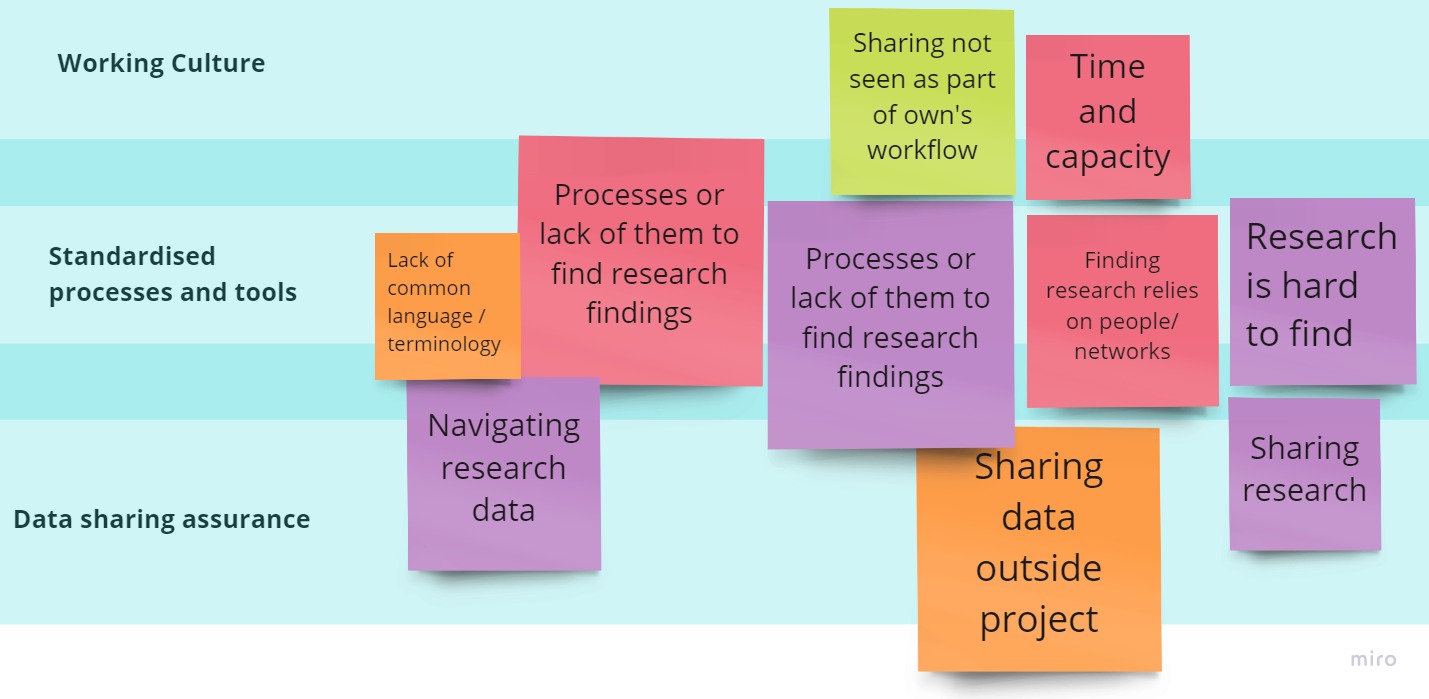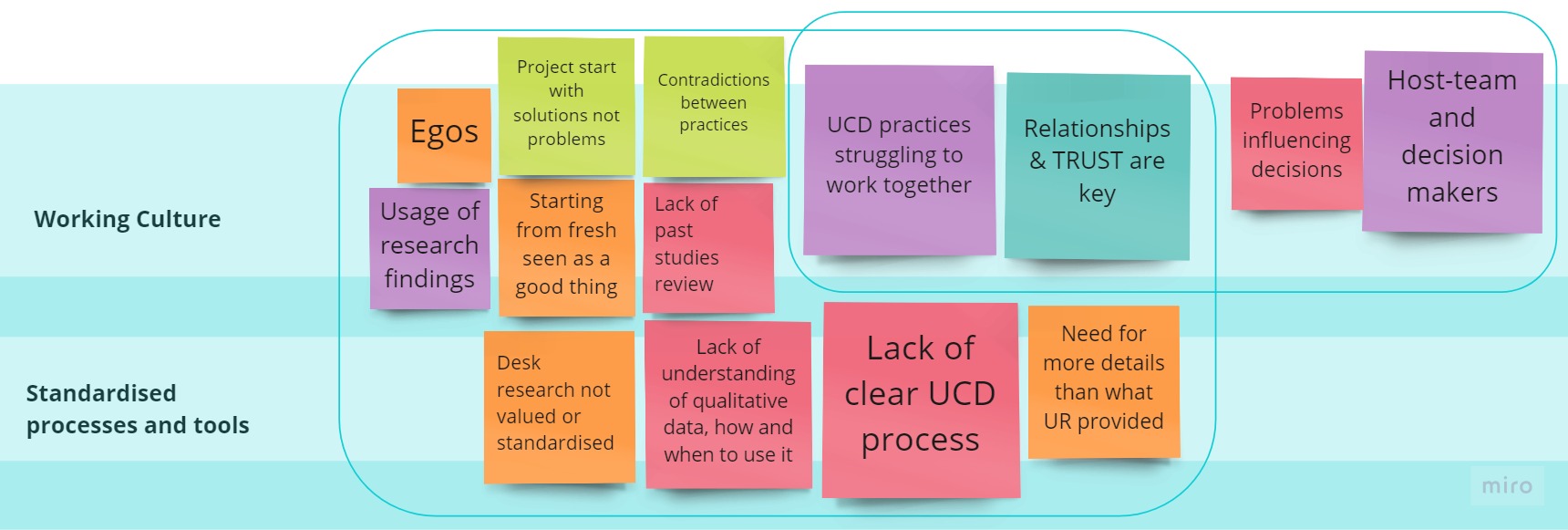Digital
Making the most of user research findings
July 14, 2021 by Stewart Hamilton No Comments | Category Digital Scotland, Research, User-Centred Design
Blog post co-written by Mark Daniels, Aleksandra Kaleta-Pyrek, Daniel Migliorelli and Fiona Wragg
In this blog post, Mark Daniels, Daniel Migliorelli and Fiona Wragg who work in the Digital Transformation Division of the Scottish Government’s Digital Directorate and Aleksandra Kaleta-Pyrek who works in Social Security Directorate share discovery findings showing that standardised processes for sharing user research would help us to work more collaboratively and efficiently. This research is about helping us be more ethical and user focussed, a principle set out in A changing nation: how Scotland will thrive in a digital world.
Imagine you could easily access findings from user research and the evidence behind them through ‘one single door’, making them easy and secure to find, share and re-use? One organised ‘library’ of all previous research findings about your users.
This could help you improve your service and also avoid duplicating user research, saving time, resources and keeping your user engagement ethical.
Last summer, the Cross-Cutting User Needs project conducted discovery research looking at the problems with sharing user research. We were working in the context of the response to Covid-19 – where it was vital to share information quickly and not duplicate effort.
We spoke to user researchers, content designers, service designers and product managers, from across government, about their problems sharing user research findings and this is what we found.
There’s a problem with our working culture
We usually struggle to deliver actionable user research findings or do not have capacity to take action on them due to the organic way we work and behave as organisations.

Post it notes. Left to right. Lack of translation from finding into something actionable. Too much time for research, no action. Lack of action. Findings not actionable/deliverable. Problems with user needs/user stories. Research to generate empathy and not new knowledge. Difficult to find true need. Bias.
We lack standardised processes and tools
There’s no consistent and structured way of collaborating to produce actionable research findings between disciplines.
This means user-centred design (UCD) professionals mainly (but not only) struggle to work together on things. This issue is also interdependent with our working culture.
There is a lack of trust in:
- each other’s individual approaches or methods
- the quality of findings from previous user research

Post it notes. Left to right. Lack of common language/terminology. Navigating research data. Processes or lack of them to find research findings. Sharing not seen as part of own workflow. Sharing data outside project. Time and capacity. Finding research relies on people/networks. Research is hard to find. Sharing research.
We need data sharing assurance
It’s difficult to share data outside projects due to a mix of real and unfounded concerns about data protection and security. This is also interdependent with the lack of common processes and tools.

Post it notes. Usage of research findings. Egos. Project start with solutions not problems. Starting from fresh seen as a good thing. Desk research not valued of standardised. Contradictions between practices. Lack of past studies review. Lack of understanding of qualitative data, how and when to use it. UCD practices struggling to work together. Lack of clear UCD process. Relationships and trust are key. Need for more details than what UR provided. Problems influencing decisions. Host-team and decision makers.
The importance of taking this work forward
This work has highlighted some of the key things we need to address in the near future, as a collective, on a strategic level and in our individual roles on projects in order to share knowledge from research.
Strategically, all practice communities that use user research findings should collaborate and develop a UCD operations framework. This framework could translate the principles of the Scottish Approach to Service Design into a commonly understood process to use when working on projects.
This process could clearly define research:
- governance
- assurance
- roles
- deliverables
- formats
Having this UCD framework of processes and formats to standardise research data and output would enable projects to link evidence to findings and findings to actions. This means a more effective use of research, a more streamlined approach and collaboration between different roles.
Finally, building a centralised research register of findings and actions accessible across organisations, which anybody can contribute to, would:
- facilitate data sharing
- improve efficiency
- reduce the ethical risks of engagement duplication
This is particularly important in times when we all need to think about how to work more collaboratively and efficiently.
We want to keep working on this together
During our research we were referred to and contacted by many teams, working across different public sector organisations, who were also trying to tackle these issues. This included:
- Once for Scotland, the Scottish Government
- Research Data Scotland, the Scottish Government
- Data Standards Project, the Scottish Government
- Social Security Directorate, the Scottish Government
- NHS NES service design team
- NHS24 user research team
- GOV.UK’s digital Identity research and design community, Government Digital Service
As Covid-19 response workstreams were closed for our teams, the Cross Cutting User Needs team moved from a full time project to a working group. Covid emergency work may have finished but these issues were there before it and won’t go away now.
This is something we still find critical to sort out and we know we won’t be able to do it on our own. As a UCD community we need as much help as we can get from the wider public sector community.
If you’re curious about finding more or collaborating with us, email us at crosscuttinguserneeds@gov.scot.
Tags: Collaborating, content design, scottish government, service design, Sharing data, user research, User-centred design (UCD), Working culture

Leave a comment